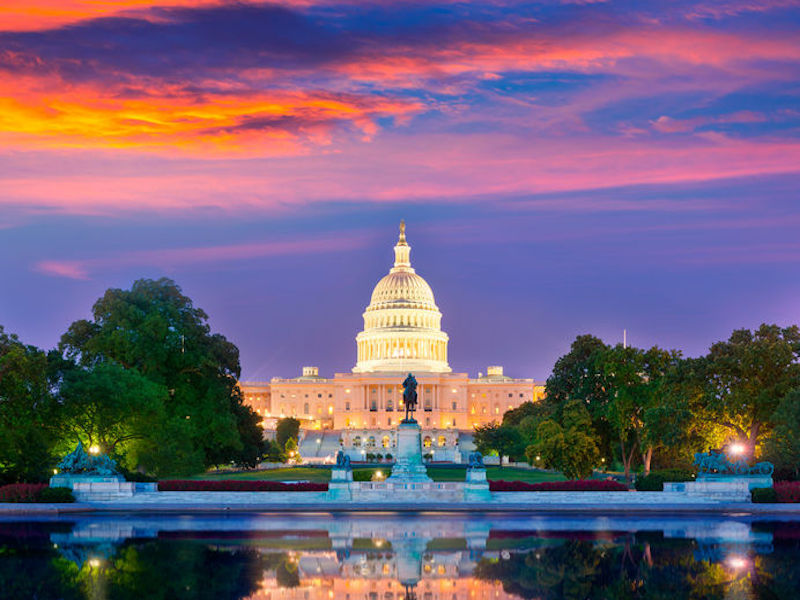
With President-elect Joe Biden officially becoming the 46th U.S. president today, institutional investors are preparing for a return to traditional governance and increased market stability.
While markets don’t often respond favourably to a change in administration, the return to “normality and transparency” in Biden’s policy and governing style will act as a counterbalance, says Matthew Benkendorf, chief investment officer for the quality growth boutique at Vontobel Asset Management.
“I think people were excited about the change four years ago, the possibility of having an outsider and a businessman in the White House. But what this pandemic has highlighted is government is a bureaucratic institution and it takes a bureaucrat to run it efficiently. People crave stability and that’s what’s setting into the markets. The knee-jerk environment where tariffs are on and then off, for example, is difficult for the markets.”
Read: U.S. markets betting on Biden, investors preparing for energy sector impacts
That stable approach also extends to global markets, he says, providing a contrast to the often-confrontational style of soon-to-be former President Donald Trump. “Doing things traditionally — behind closed doors and working towards solutions — may be a better way to deal with counterparties like China. I think the world will like that approach because it’s more comfortable and seems to have worked over the years.”
Erik Weisman, chief economist at MFS Investment Management, says the Democrats’ recent Senate victories in Georgia will also shape the markets, as additional pandemic-relief stimulus funding becomes more likely and potentially hastens economic recovery.
“So one should imagine that the combination of a lot of fiscal liquidity and continuing monetary liquidity may set up a more vigorous rebound on the other side of the pandemic. Where that matters most from a macro point of view is how quickly we pay back this negative output debt and how quickly we put people back to work.”
Jon Mackay, head of sales and wealth management solutions at Schroder Investment Management North America Inc., says delivery of the coronavirus vaccine will also play a role in shaping markets for 2021. “There’s changes happening on a day-to-day basis in terms of who’s eligible to receive it and how it will be distributed. The market is watching as that happens and is looking to better days ahead with something that at least looks like a full reopening in the middle of the year.”
Read: Institutional investors facing brighter 2021 but challenges remain
Weisman says while the forecast is good for risky asset valuations, any sudden increase in interest rates could cause problems for the equities markets. “As long as treasury yields don’t vault higher quickly and as long as the dollar doesn’t have a meaningful rebound, it leaves the door open for broad-based risk asset classes to generally do well, unless the U.S. is flying so much higher than the rest of the developed world. A weaker U.S. dollar is always better for emerging markets.”
And even before the Biden administration took office it made its focus on green energy clear, as exemplified by recent news reports the new U.S. president plans to cancel the Keystone XL oil pipeline (which is owned by the Calgary-based TC Energy and had already broken ground in Alberta). While this news has raised questions about the impact on traditional energy markets, Weisman says it isn’t an end-of-the-world situation.
“We’re going to need fossil fuels for a lot longer. Some of these targets can’t possibly be met, but it’s certainly wind at the back of more green energy sources and the market has already sussed that out. Another element is what kind of horse-trading might there be to get the Republicans more accommodating. Under Trump, there wasn’t much effort to reach out to the other side and I’d make the argument that the Obama administration [which Biden served as vice-president of from 2009-2017] also decided there was no point.”
Benkendorf says Biden’s energy policies are only the latest challenge for the energy market, which he claims isn’t expected to shrink as emerging economies continue to rely on oil. “The near-term energy weakness is a little exaggerated, though, as you’ve had near-term weakness for some time in emerging markets. It’ll continue to be based on numbers, considering the stronger growing Chinese, Indian and Brazilian economies. These countries getting back on a growth track will boost oil demand, as these countries aren’t switching over to renewables too quickly.”
Read: Institutional investors turning to equities, global markets in 2021
